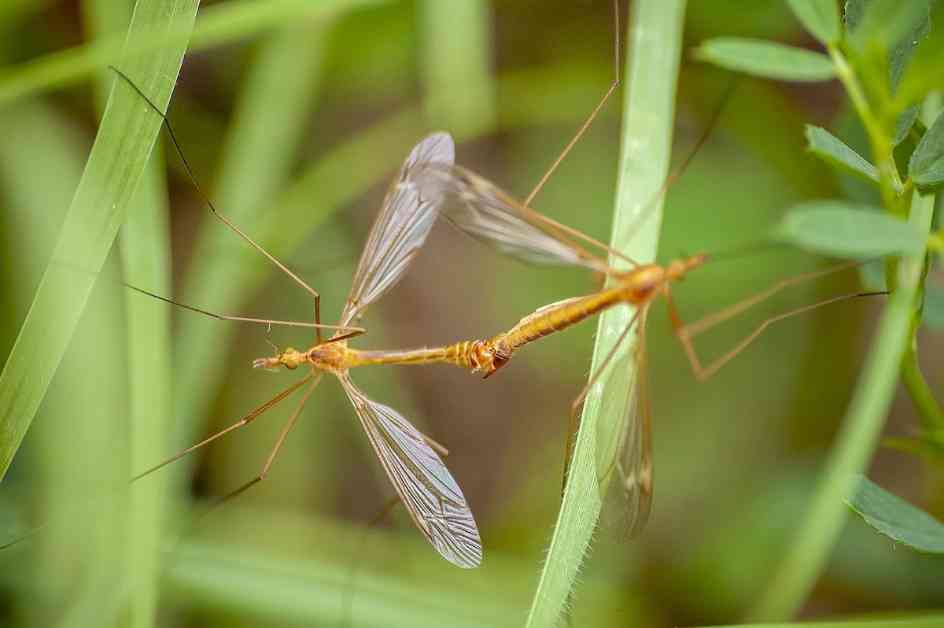Developing Genetically Modified ‘Toxic Males’ to Control Australia’s Mosquito Population – Eco-Friendly Solution
In a groundbreaking study led by researchers at Macquarie University in Australia, a new technique involving genetically modified ‘toxic males’ is being developed to combat the country’s mosquito population. The innovative method aims to genetically engineer mosquitoes to produce venom proteins in their sperm, similar to those found in spiders and sea anemones, which can be transferred to female mosquitoes during mating.
Testing the ‘Toxic Male’ Technique
The researchers initially tested this technique on fruit flies, where they observed a significant decrease in female fruit fly lifespans by 60% after mating with the venomous males. The poison transferred during mating, causing the females to live only about six or seven days post-interaction. The ultimate goal is to have a much faster reaction, closer to 100%, according to Sam Beach, the lead author of the study.
Potential Impact on Disease Control
The study findings indicate that this genetic modification could significantly reduce blood feeding by 40% to 60%, potentially curbing the spread of mosquito-borne diseases. The Aedes aegypti, also known as the yellow fever mosquito, could be a primary target for this technique to control disease-causing mosquito populations.
Environmental Benefits and Future Research
The ‘toxic male’ approach offers a promising alternative to using insecticides, which can lead to pesticide resistance and environmental pollution. Researchers believe this method could effectively target invasive mosquito species with lower environmental impacts while reducing the risk of disease outbreaks. Future research will focus on assessing the short- and long-term impacts on predators and the environment, with the goal of minimizing the lifespan of infectious female mosquitoes upon mating.
As we face the impending threat of expanding mosquito populations due to climate change, this research provides a ray of hope in the fight against mosquito-borne illnesses. With millions of lives at stake and the potential to protect food crops and native species, the development of genetically modified ‘toxic males’ could revolutionize disease control efforts in the future.
Paige, a dedicated writer passionate about sustainability, highlights the urgency and significance of this research. She emphasizes the critical role that genetic engineering could play in preserving human health and ecosystem balance. Through her insightful perspective, she sheds light on the complex interplay between scientific innovation and environmental conservation, sparking a conversation about the delicate balance between human intervention and natural ecosystems.














